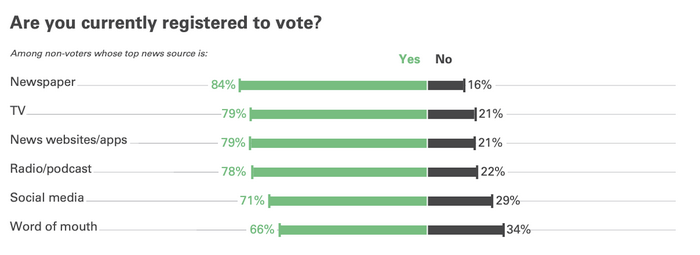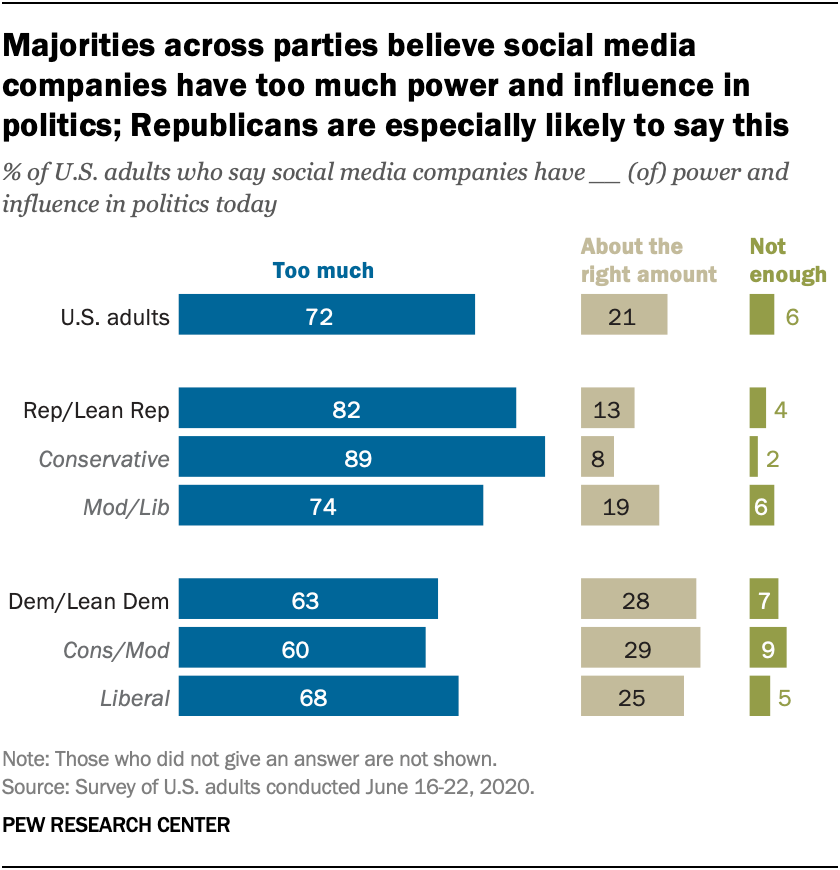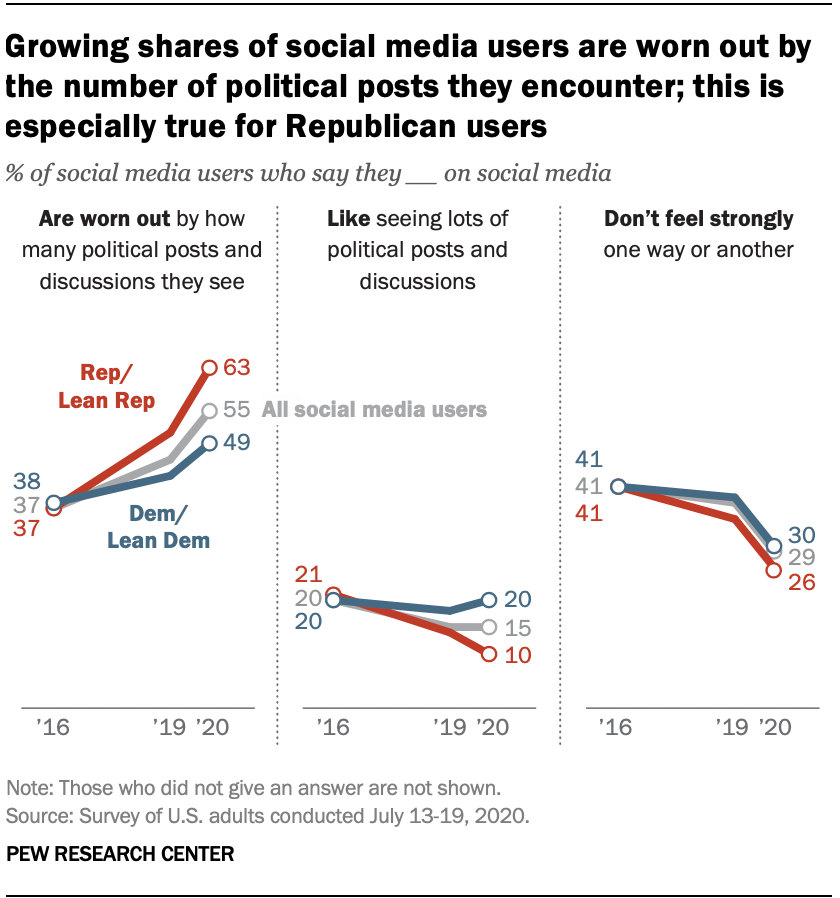What Do Voters Think About Social Media in 2020?
Since the 2008 presidential campaign when Twitter and Facebook made their political debuts, social media has become a critical part of modern campaigning. The social distancing measures necessitated by the COVID-19 pandemic have only served to increase the importance of social media platforms during the 2020 elections.
According to Facebook’s data, political advertisers have spent more than $1.8 billion on the platform since 2018. This figure doesn’t even begin to capture the value of the social network’s unpaid, organic distribution of candidates’ posts.
With increased transparency into online advertising and social media data, significant attention is paid to campaign’s usage of social media to raise money and earn votes, but campaigners must also consider voters’ attitudes towards social media and politics.
Here’s a look at key insights from several polls conducted in the last year about voters attitudes towards social media.
Many Voters Get Political News On Social Media
According to data from the Pew Research Center, 18% of U.S. adults follow politics and elections mostly through social media. Compared to individuals who get their news from other sources like TV or news websites and apps, this group is “less likely to closely follow major news stories and, by default, less likely to be knowledgeable about these topics.”

Critically for campaigners, however, “the group relying on social media tended to be younger and less likely to be white, with lower levels of formal education and lower household incomes,” reports Pew.

Social Media Users are Untapped Voters
A Knight Foundation study found that 71% of individuals whose top news source is social media are registered to vote and 26% volunteer with an organization at least monthly.

Unfortunately, social media as a primary news source is “tied to lower likelihood of voting in the future, more skeptical views about the efficacy of voting and lower community engagement overall.”
Voters Believe Social Media Is Important to the Political Process
“Overall, eight-in-ten Americans say social media platforms are very (31%) or somewhat (49%) effective for raising public awareness about political or social issues,” according to a July survey from Pew.

The data show that Democrats are more likely than Republicans to place importance on social media as a method for raising awareness (86% – 74%), creating sustained social movements (82% – 73%), getting elected officials to pay attention to issues (71% – 59%), influencing policy decisions (66% – 61%), and changing minds (60% – 55%).
But Americans Also Think Social Media Companies Have Too Much Power
Another Pew survey found “72% of U.S. adults say social media companies have too much power and influence in politics today.”

Republicans and Republican-leaning independents (82%) are more likely to hold this view than Democrats and Democrat learners (63%).
Most Americans Think Social Media Platforms Engage in Censorship of Political Viewpoints
Three in four (73%) Americans surveyed believe it is very or somewhat likely that social media platforms censor political viewpoints they disagree with. This view is held in both parties, but “is especially common – and growing – among Republicans.”
90% of Republicans surveyed in 2020 believed it’s likely that censorship occurs – a 5 point increase since 2018.

And They Worry Social Media Distracts From Important Issues
In the same Pew survey that found Americans believe social media to be an important part of the political process, 79% of respondents think “social media distract people from issues that are truly important” and 76% also believe “social media make people think they are making a difference when they really aren’t.”
They’re Tired of Politics on Social Media
“55% of adult social media users say they feel ‘worn out’ by how many political posts and discussions they see on social media,” according to Pew Research data.

Unsurprisingly, this is a 9 point increase since the same question was asked in 2019.
As these polls show, social media has become an important forum for discussing political issues, but Americans are still weighing the costs and benefits of this reality. Savvy campaigners must remain active on the platform, both sharing their own content and interacting with voters.